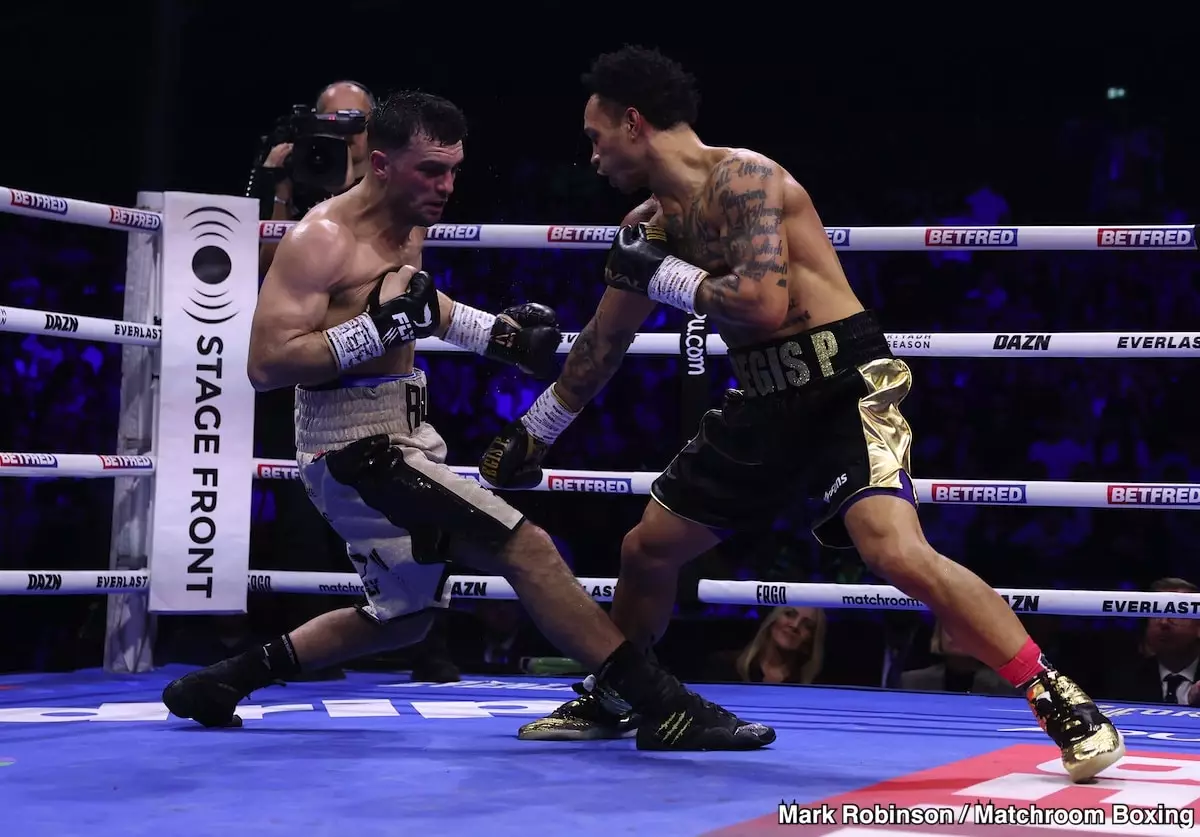The world of boxing is no stranger to rivalries, but few have ignited quite like the ongoing back-and-forth between Devin Haney and Regis Prograis. Following Prograis’s recent loss, Haney has seized upon the moment to deliver pointed jabs, urging his opponent to consider retirement. The latest skirmish of words unfolded on social media, showcasing not only the competitive nature of these two fighters but also the intricacies of their evolving paths within the sport.
After Prograis’s defeat, his 29-3 record signifies the arduous nature of his career, which includes 24 knockouts. Contrary to Haney’s suggestion of retirement, Prograis reaffirmed his determination to reclaim a world championship title. His plan to move up to the 147-pound division, known for its accessibility and opportunities, is a testament to his unwavering spirit as an athlete. In a sport where every loss can cast shadows on a fighter’s reputation, Prograis exhibits a resilience that many can admire. Rather than surrendering to despair, he channels his energy toward new ambitions.
On the flip side, Devin Haney, boasting an undefeated record of 31-0 with 15 KOs, has displayed an eagerness to capitalize on Prograis’s misfortune. Haney’s comments regarding Jack Catterall suggest a strategizing mindset focused on competitive positioning. By belittling Prograis while elevating Catterall, he attempts to carve out a narrative in which he emerges superlative. The complex psychology behind Haney’s statements reflects an underlying anxiety; his own fate is intertwined with the performance of others.
The argument surrounding who the better fighter is—Haney or Catterall—gains complexity through rhetoric and testimony. Prograis’s assertion that Catterall punches harder than Haney adds another layer to an already convoluted narrative. It raises questions about the true measure of a fighter: is it skill, power, or the ability to endure? Prograis’s insistence that he was not himself during their fight—attributing part of his performance to being off-balance—indicates a depth of self-analysis that is crucial in professional sports.
The boxing community often thrives on these back-and-forth exchanges; they fuel public interest and keep the athletes in the limelight. However, one must ask if such divisive and often personal commentary serves the sport. Is the focus on who is “better” overshadowing the necessity for mutual respect? While competition is fierce, it can become counterproductive when it morphs into vitriol.
The uncertainty surrounding Haney’s next fight, particularly with respect to a match against Catterall, is emblematic of a larger issue in boxing—matchmaking dilemmas. Haney’s desire for promoter Turki Alalshikh to facilitate this matchup underscores the many layers at play in professional boxing, where politics can severely influence an athlete’s trajectory.
The idea that big names and payouts dictate who fights whom brings attention to the commercial aspects of the sport. Fans often wonder whether the most deserving fighters will get their opportunity or whether financial considerations will prevail. Both Haney and Prograis find themselves at the mercy of these dynamics. The looming possibility of Prograis fighting for a championship belt at 147 could create an interesting crossroads for Haney. Should Prograis secure a title, the narrative framing Haney could shift dramatically.
Regis Prograis’s recent comments regarding Haney’s apparent emotional volatility—suggesting that Haney may be “bipolar”—illustrate a different angle of their rivalry. In boxing, mental fortitude is as crucial as physical prowess. A fighter’s ability to maintain composure can significantly influence performance. The psychological games played between fighters can serve as elaborate chess moves, where each verbal jab is meant to unsettle the opponent before they even step into the ring.
The dynamic between Devin Haney and Regis Prograis encapsulates the multifaceted nature of boxing. This rivalry is episodic—not merely a contest of fists but a battle of wits, reputations, and ambitions. Both fighters are navigating complex waters as they move forward in their careers, aware that every word said or fight fought may reverberate in ways they cannot anticipate. As fans, we are left watching, waiting, and debating who will ultimately emerge victorious—both inside and outside the ring.

